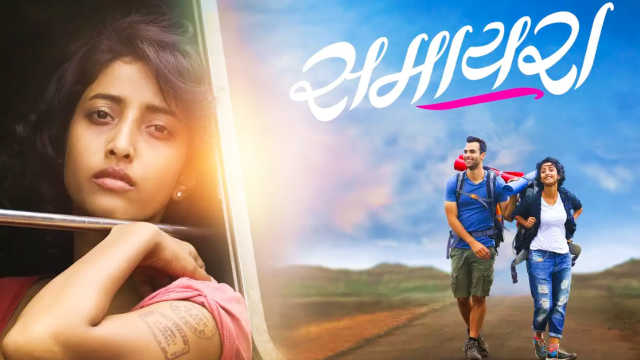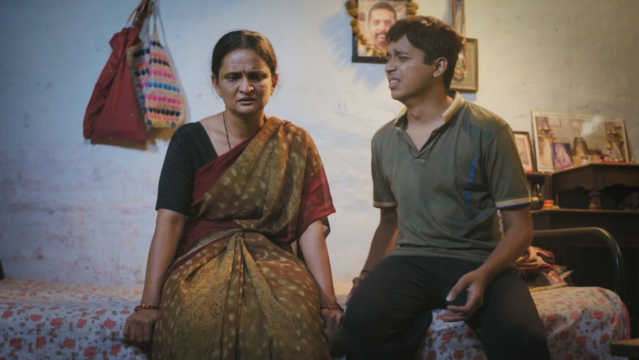
Keyur Seta
Mumbai, 15 Feb 2019 11:53 IST
While the story of the journey of Anandi Gopal Joshi, India's first woman doctor, is more than a century old, it remains relevant even today.

With the exception of YZ (2016), every one of director Sameer Vidwans’s films — Time Please (2013), Double Seat (2015) and Mala Kahich Problem Nahi (2017) — has been about married couples.
His latest, Anandi Gopal, is a biopic of India’s first woman doctor Anandi Gopal Joshi. But at heart, this is also a film about a couple’s life after tying the knot.
And yet it is very different from the other films about married couples that Vidwans has directed.
His earlier romantic films were about the personal struggles of a man and a woman in today’s urban environment. Anandi Gopal, on the other hand, deals with the social struggles of a couple more than a century ago. It is a tale of national importance.
When Anandi (Bhagyashree Milind) was a little girl, she had no idea she would go on to make other women of her country proud. Like every wife in that era, she was told to obey her husband and she studies only because her husband Gopalrao Joshi (Lalit Prabhakar) is adamant that she must. Indeed, his only demand of his wife-to-be is that she must continue her education after marriage, a revolutionary thought even today in some quarters in India.
Anandi struggles initially while Gopalrao faces opprobrium from the orthodox society of the era that was dead-set against female literacy, let alone higher education for women. But Anandi slowly gets involved in his struggle and, after a personal tragedy, decides she will become a doctor.
Valentine's week is just so apt for the release of Anandi Gopal. The film is not a conventional romance. Neither does it include any conventional display of affection, private or public, between the lead couple. And yet, there are moments in the film that speak volumes of the love they shared. Like when Gopalrao runs from pillar to post to help fulfil Anandi’s desire to become a doctor. And it is Anandi’s love for Gopalrao that persuades her, even if with great reluctance, to agree to travel to America to study medicine without him. Their written communication is full of taunts for each other but you can’t miss the underlying love.
Gopalrao’s strictness, bordering on strong-arm tactics, is unlikely to find much acceptance with today's audiences, but one cannot forget who he was and the era he inhabited. Besides, his goal was undoubtedly a noble one.
The chemistry between the lead couple and their performances are just too good. This is easily the most challenging role Lalit Prabhakar has performed in his short career so far. Gopalrao's adamant, at times whimsical, nature is so believable. You get startled when he screams at someone. On other occasions he becomes such a soft-hearted person you find it hard to believe it is the same man. Lalit Prabhakar portrays all these mood swings with great control.
Bhagyashree Milind, meanwhile, plays out the progression of her character from a timid girl to a revolutionary woman with complete conviction. On several occasions, she speaks her mind so well through mere gestures and expressions, without a word escaping her lips.
Anandi Gopal's story is set in 19th century Maharashtra and the era has been beautifully recreated by the production design team. But though the story is more than a century old, the content and conflicts are relatable even today. Which is not necessarily a good thing. When, for instance, so-called religious and social norms are cited in an attempt by society to decide how the Joshis should lead their lives, you realize how little has changed in some respects after all these decades.
In a sense, Anandi’s journey has similarities with that of Dadasaheb Phalke. Like her, the father of Indian cinema had to fight against social norms to go abroad to get training in the nascent craft. His courage inspired so many others in the country to take up filmmaking.
The one drawback of the film is the minimal attention paid to Anandi's struggle alone in a faraway land with a different culture. But that ought not to stop you from celebrating this revolutionary couple, or from applauding the end credits that celebrate a long list of Indian woman achievers.
You might also like

Review Marathi
Samaira review: This well-intentioned travel drama suffers from a dull script
Actor Rishi Deshpande's directorial debut doesn't rise as much as its performances. ...

Review Marathi
Goshta Arjunchi review: Triggering conversations about mental health
Anupam Barve’s short film urges people to talk to their families about what they are going...

Review Marathi
Ekda Kaay Zala review: Sumeet Raghvan impresses in a film that does not use its full potential
Directed by Dr Saleel Kulkarni, the film has a fine act by child artiste Arjun Purnapatre....

